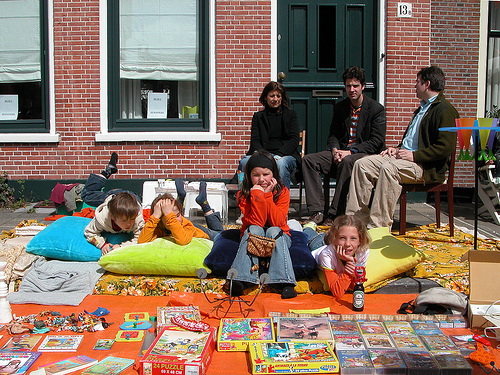Learning the Social Customs of the Netherlands

In the Netherlands, people take value in egalitarianism. Parents raise children to be tolerant of people’s differences, and to think without gender biases. Work places are not usually dominated by rigid hierarchies, and even if there is a leader, each worker will usually have a say in matters. Even if a boss makes decisions, this person will often strive for a consensus. There is also virtually no poverty in this society, as there are generous welfare and other social programs, but those who do work face very high taxes to pay for this.
Families are very important to the Dutch, but they tend to be small, and parents usually only have one or two children. It is not viewed negatively to have mothers stay at home to raise their children rather than work full-time.
The Dutch dress neatly, and take appearances seriously, as they reflect upon the person. They also value cleanliness and personal organization, as well as being thrifty and hardworking. In public, they tend to be quiet, private and reserved, and do not try and draw attention to themselves. They do not like sharing personal details about themselves to strangers, and will not ask this of others. It is rare to find a Dutch person showing off wealth or bragging about accomplishments. Work and home life are completely separate, and if people are friends at work, they do not let these lines cross.
When greeting Dutch people, firm, quick handshakes are the typical gesture. It is expected to shake hands with everyone in the room, even children. The Dutch usually only call family and close friends by their first names, so it is polite to use formal names at first.
If you are invited to a Dutch household, it is polite to bring a small gift, such as a book, chocolates or a potted plant. Flowers are also nice, but should be given in odd numbers (but not 13). Refrain from bringing wine, as the hosts usually like to pick out their own bottles. Dining manners are relatively formal, and you must wait to be told where to sit, and do not start eating until the hostess initiates. The host will usually give the first toast of dinner, and then the guest of honor should give a toast later. You should put small amounts of food on your plate so that you can have second helpings. Finish all of your meal, because the Dutch view it negatively when people waste food.
